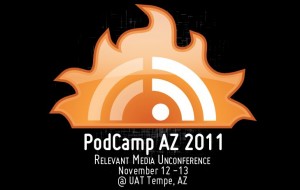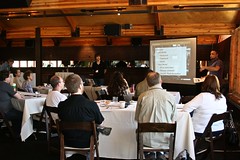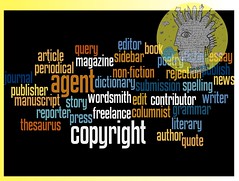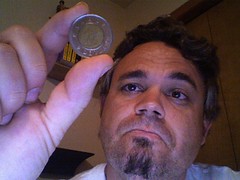 [/caption]
[/caption]This time of year, thousands of authors are gearing up for a month of uber-productivity. They're canceling weekend plans. They're figuring out how to re-set their alarm clocks. They're shifting work deadlines so they never, ever have to work late. At least not for the next month. And they do these things for a single purpose: to write a novel in 30 days.
Yes, next month is NaNoWriMo. And I hate it.
Sorry, but it's the truth. The mere thought of this causes a Cheney-like sneer to dominate my features. My eyes being to auto-roll at the mention, and I start looking for sharp objects to end the pain. One way or another.
On the surface, NaNoWriMo is a great idea. You join a thousands-strong peer group and achieve the unthinkable; you write your own novel, and you do it in 30 days. No editing. You just write. You shock your brain into a routine that keeps your butt-in-seat, forces you to pound on the keys, and just keep going until you hit (at least) 50,000 words. Then... you win.
All of that? I love. And hate.
I hate NaNoWriMo for 3 basic reasons:
- Repeat offenders. NaNoWriMo, at its core, teaches you that yes, you can put the requisite work in to write 50,000+ words. Congrats. You've done it. You know you can. You have what it takes inside you. And you did it in only 30 days. Imagine what you could do with 365 days?
But you forget that last part. You've somehow become conditioned that the only time you can write is in November, and the only way you can complete a novel is to do it all within a month.
What are you, Pavlov's dog? You did it! Great. It's time to move on. It's time to incorporate writing into your daily routine. It's time to move from doing a novel activity and becoming a novelist. Did you think high school was so great that you wanted to repeat it again? Of course not. So stop it. Get serious with your writing. - Premature epublication. The writing process is not over when your word counter ticks past the 50,000 mark. That's just the first draft. And since every author will tell you that their first published novel sucked compared to their other works, imagine how terrible your first draft ever really is!
This is reality. Writing leads to re-writing. Lots of it. And then it leads to editing. Which feeds back into more re-writing, more editing... Rinse. Repeat.
You are not done when you hit 50,000 words, or on November 30th. But I will bet money that around mid-December, every eBook publishing marketplace will see a new crop of "NaNoWriMo 2011 Winner!" books show up on their virtual shelves. I know for a fact I'll be bombarded with "winners" presenting me audio book-versions of their freshly "completed" books for Podiobooks.com. Hold the fort! NaNo just ended days ago! How did you go through all the revisions, editing, production, design and the rest of the things necessary to create a digital book for publication in a matter of days? Oh... that's right. You didn't. Writing is just the beginning. - Not everyone is cut out to be a writer. I hesitate to use the word most because it assumes I have knowledge of over half the population, and I obviously don't. But I'm going to break my own rule and say this: Most people do not possess the skills to write a cogent novel. And I'll go so far to say that most people could not be taught the skills to write a cogent novel. And of those that do, most won't put in the time, energy and effort to get better at the skill of writing. Like a never-was cover band, they'll continue to pump out the same low-level work and never, ever improve.
If you've made it this far, you're either fist-pumping in the air with me or just looking for my contact info to tell me what a giant douchebag I am. Thanks to the former, and it's under contact for the latter.
Having said all of this, I remain committed to helping indie authors and publishers be even more awesome than they already are. But that presumes a certain amount of awesomeness to begin with. And yes, I can point to a myriad of awesome indie authors. These are the people who elicit a little squee from me when they publish a new book.
So see? I'm not a cold, heartless bastard who's trying to keep you from expressing your creativity. Far from it. I'd just like you to do it better. Much, much better. If you don't know if you have what it takes to write a novel, then I highly urge you to take part in NaNoWriMo this year. Or next. And then once you've learned that you can, it's time to learn the rest of what it means to be a writer today. Because you're just getting started!
Oh, and because someone will ask: No, I've never participated in NaNoWriMo. I'm not a novelist. And I have no desire to be one. My love/hate relationship is much more pragmatic than simple jealous anger.
Let the hate mail begin.









